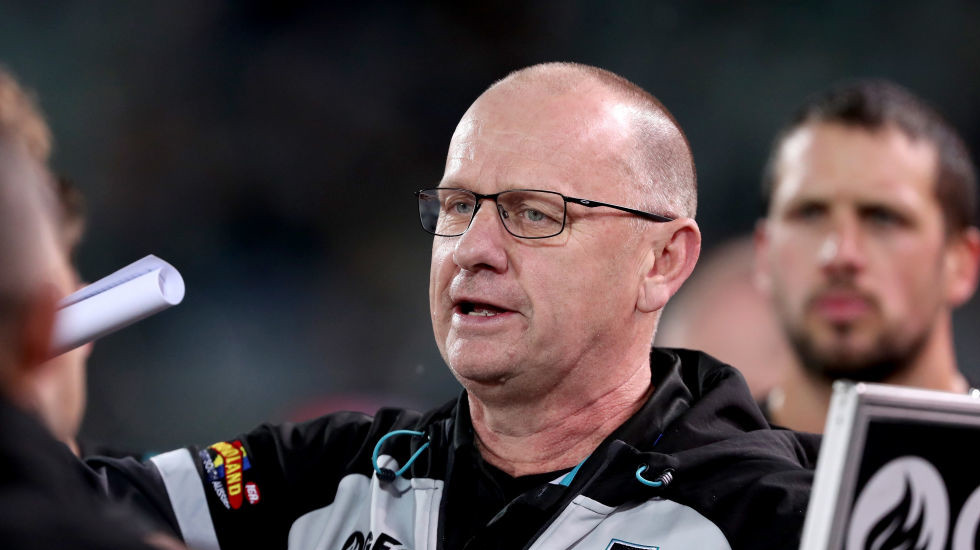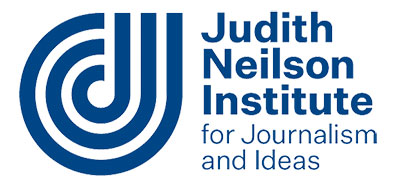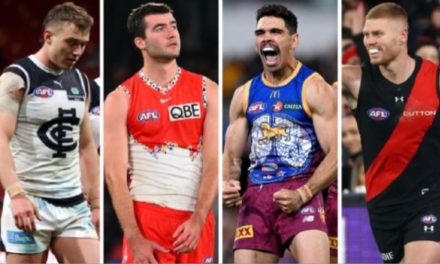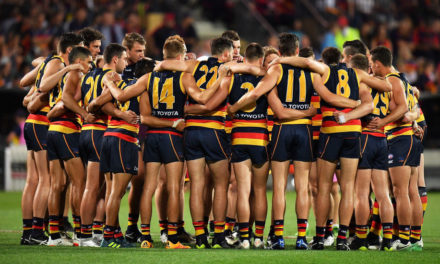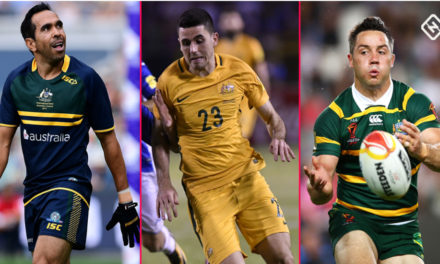Ken Hinkley admits the stresses attached to coaching are great, but he wouldn’t have it any other way. Photo: AFL MEDIA
Three years ago Port Adelaide coach Ken Hinkley stood before his AFL club’s agitated membership for a Q&A session that was a primetime part of the show president David Koch demanded for a usually dry event.
To Hinkley’s far right, in the back row of the upstairs room at Alberton Oval, a gentleman took the microphone to question Port Adelaide’s ball movement.
His mock – and mocking – rundown of how the Port Adelaide players went about taking the ball from deep defence would have made Dennis Cometti blush. As each step was described in detail, often with derision, Hinkley showed great restraint. Many other AFL coaches might not have been so polite.
To many in the room – even those who had been critical of Hinkley’s results at a club that has never before allowed a coach to continue after missing consecutive finals series in the AFL or SANFL – the passionate supporter on the microphone was publicly stripping Hinkley of his dignity. And no one came to Hinkley’s rescue.
No surprise, Hinkley has not taken questions from the floor again at a Port Adelaide Football Club annual meeting, preferring to be interviewed by the event compere.
This moment adds to the list Geelong premiership coach Chris Scott and former Adelaide senior coach and now Sydney assistant coach Don Pyke have presented as alarm bells on the growing toll being experienced by AFL coaches.
Pyke left Adelaide at the end of a disastrous 2019 season declaring: “There’s a line and we’re treading carefully to the line” that makes and breaks coaches.
Scott is not the pin-up boy for the AFL Coaches Association recruiting department. He smashes those who compare the six- or seven-figure salaries collected by an AFL senior coach with the inferior pay handed to the Prime Minister who deals with just as much scrutiny, is no more secure in his job tenure and at political rallies is certainly not free of the moment Hinkley endured from his club members.
Scott says he is “compensated” for all he endures as an AFL senior coach rather than remunerated by Geelong for delivering the best win-loss record in home-and-away matches during the past decade.
But when no AFL coaching vacancy goes without multiple applications – even from women today as noted with former Australia netball coach Lisa Alexander seeking the North Melbourne job last year – is it really such a torment to be in the “hot seat” as an AFL senior coach?
“The jury is in,” Mark Brayshaw told Footyology on clearing his desk as AFL Coaches’ Association chief executive. “From my perspective, the alarm is hearing more and more coaches say there is no fun anymore in the game … and it has been replaced by scorn and a lack of respect for their work.”
Brayshaw responds when asked if there is an urgent need to rethink how coaches are appointed and supported by saying: “Unquestionably”.
Australian football’s professional era has changed the pathway to AFL senior coaching.
Malcolm Blight, dubbed “The Messiah” for his back-to-back premiership triumphs at Adelaide in 1997-1998, developed his skills for managing people while taking charge of a national transport company.
Alastair Clarkson, the most-successful AFL coach in today’s ranks of 18, was a teacher before becoming a full-time coach at Hawthorn. Luke Beveridge worked through the particular ways of the tax office before creating his “miracle” with the 2016 AFL premiership that ended a painful six-decade drought for the Western Bulldogs/Footscray.
Most of today’s AFL coaches have career paths that read: Play the game, become an assistant coach, then apply for a senior job. There are no “professional life experiences” outside the football bubble.
“Today,” says Brayshaw, “the only recent appointees as AFL senior coaches who have stopped that trend are Chris Fagan at Brisbane and David Noble at North Melbourne.”
Brayshaw leaves the AFLCA after six years with a meaningful – and heavy – agenda to be picked up on coaches’ welfare. This is more pressing considering the cuts made in football department spending amid the COVID pandemic is demanding more of coaches while expectations for success have not diminished.
Brayshaw points to three areas needing to be addessed.
CLUB BOARDS. A greater understanding is needed to ensure more realistic expectations – and patience – with coaches. “The notable exceptions are Geelong and West Coast that have succeeded with first-up coaches (Chris Scott and Adam Simpson respectively) by showing first-class leadership from the board room,” Brayshaw said.
SECOND CHANCES. In the bigger sporting landscape of the northern hemisphere, notes Brayshaw, coaches such as Michael Voss would not be cast aside after “failing” in their first job. Clubs would eagerly rehire knowing a rookie coach is better on his second or third or fourth assignment. Some of Europe and North America’s most-successful coaches today became sounder for their mistakes learned in tough apprenticeships.
DEVELOPMENT PATHS. Assistant coaches would learn more than the Xs and Os of tactics on a whiteboard by developing new skills – in particular life skills – while tapping into proven leaders outside the football world. “They would find there are other ways of thinking,” said Brayshaw. This theme is endorsed by Gold Coast coach Stuart Dew.
Industry does have more winners than Australian football. Only one AFL coach can win the premiership in any year. But in business there can be multiple winners with chief executives and other executive managers meeting or exceeding budgets. As long as they pay a reasonable dividend, the shareholders cheer.
PLEASE HELP US CONTINUE TO THRIVE BY BECOMING AN OFFICIAL FOOTYOLOGY PATRON. JUST CLICK THIS LINK.
And how many chief executives go through two press conferences each week to be grilled on strategy?
Notable in American professional sports is the term “winning season” that judges coaches favourably if they achieve more wins than losses in a year.
Chris Scott’s recent appearance on Footy Classified on Channel Nine would have made his twin brother Brad avoid putting up his hand for a return to coaching after moving from North Melbourne to AFL House.
Asked if Brad should step back into a coaching role, Chris replied: “No, I would not …
“It is not a very good job; it is hard work; it is a stressful existence. There is a cost to the position.”
Chris Scott’s former football boss at Geelong, Neil Balme, suggests this is Scott’s media savvy way of “getting everyone to realise how stressful and challenging the job of coaching is.”
“It is an interesting take from Chris,” adds Balme. “I can assure you, if (coaches) did like doing the job, they would not do it. And I know Chris well … he does love coaching. There is a lot of stress, I agree with him on that.
“It comes with the job. It is a very stressful job. When it goes well, you can’t believe how easy it is. When it is not so good, you can’t believe how difficult it is. But you have to deal with that.”
Balme coached in the SANFL (Norwood and Woodville-West Torrens) and AFL (Melbourne) during the 1980s and 1990s and since then has managed with a “Midas touch” successful football programs for Chris Scott at Geelong and Damien Hardwick at Richmond.
His view on AFL coaching today is not as alarming as the image presented by Chris Scott.
“Clubs do a bloody good job of helping and supporting coaches,” Balme said. “We have put a fair bit of pressure on ourselves now by how much we can spend (after the COVID-enforced cuts to football department spending). This is a backward step and I hope we can get back to what is reasonably normal.
“Maybe we had too many people and we were spending too much in the past. But now we are on the other side of that equation with a lot of people doing two jobs.
“(Regardless), the challenge is the same – to provide an environment where people do enjoy coaching and playing the game. They want to be a part of it.”
Hinkley has endured many awkward moments, from club president David Koch applying pressure with biting public comments to the inevitable trolls among his club’s supporter base.
But after almost a decade as a senior coach at Port Adelaide – after a long apprenticeship as an assistant coach at Geelong and Gold Coast – Hinkley is not seeing the gloss on his job becoming tarnished.
“I love my job,” Hinkley said last Thursday. “The pressure is tough – and the pressure is real. But I love what I do. If the pressure becomes too much, that is what happens. But for me, my passion for this job is high as it has ever been. I understand the stress Chris (Scott) talks about; we all get it.
“We understand how hard the job is. But do I want to do another job? I don’t. I love what I do.”
Pyke’s unfulfilled experience at Adelaide does concern Brayshaw considering the West Coast premiership player took charge of the Crows in 2016 with all the right hallmarks – successful in football, strong education background and self-made in business.
But while Pyke had all the right indicators for coaching – as highlighted with his early work as an assistant coach at Sydney this season – he did not adjust nor embrace the extra demands of a senior coach in a city such as Adelaide. The Crows coach often has more influence on the mood of South Australia than the Premier.
This never sat well with Pyke who probably misread the job he accepted with Adelaide.
Pyke returned to AFL coaching ranks this year again highlighting the land mines in a field many still want to step across despite the recent concerning files left by Rhyce Shaw, James Hird and premiership coach Mark Thompson.
Reflecting on his parting words at Adelaide, Pyke now says: “My message was as much for the coaches as it was for the players. People get involved in this game because they love the game, they love the competition of it, the camaraderie, they love being part of a collective group.
“When the enjoyment factor of that goes away through some of the pressures that are brought to bear … the mental health issue now is quite significant.”
AND “FINALLY” … Hopefully, this is the end of a chapter to a book that has many more pages. For now, it is a “see you later” rather than a goodbye. Contractual obligations elsewhere make it difficult to continue what has been – across 10 months – a very fulfilling experience.
Each Tuesday, the opportunity to scribble a few words on a digital canvas is more and more uplifting for the growing response from Footyology’s readers. Certainly, the North Melbourne supporters reacting to Footyology edition December 29, 2020 proved the passion that runs through the souls of the fans. For those with short recall, the final read on North Melbourne’s 2021 season was: “Avoiding the wooden spoon in 2021 will be the first significant achievement (of the rebuild under new coach David Noble).”
This is all began while many of us were adjusting to a difficult world in disarray with the COVID pandemic. It was a good time for writing – and, more so, for reading. Thank you to those who made this page a regular read.
Thank you to Rohan Connolly for the support and the opportunity, one that – hopefully in time – will resume while Footyology continues to offer more and more on sport, culture and the ways of our times.
Until we meet again …. Thank you.

